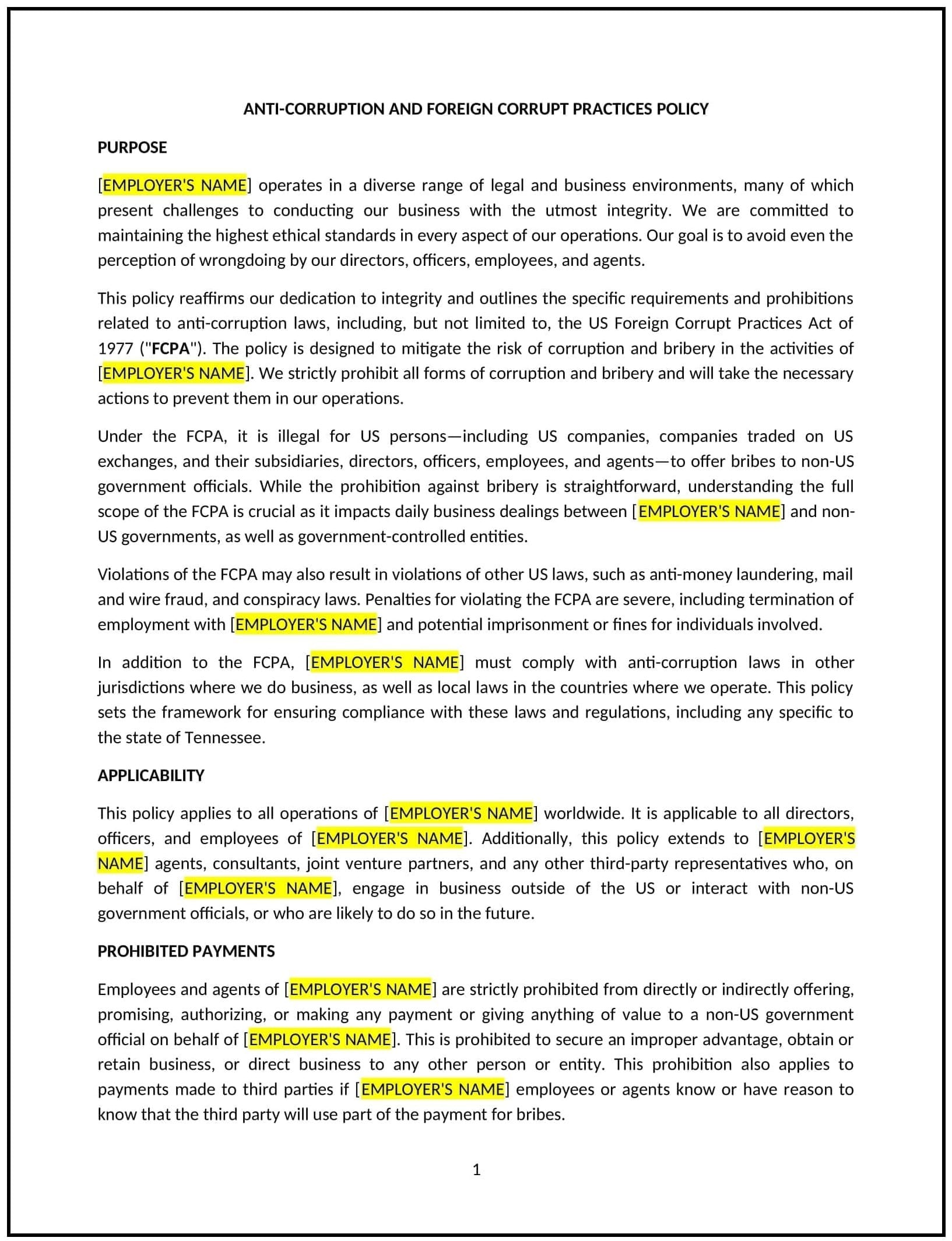Anti-corruption and foreign corrupt practices policy (Tennessee): Free template
Got contracts to review? While you're here for policies, let Cobrief make contract review effortless—start your free review now.

Customize this template for free
Anti-corruption and foreign corrupt practices policy (Tennessee)
This anti-corruption and foreign corrupt practices policy is designed to help Tennessee businesses create guidelines for preventing bribery, corruption, and unethical behavior in domestic and international operations. It outlines procedures for reporting violations, conducting investigations, and enforcing consequences.
By adopting this policy, businesses can maintain ethical standards, reduce legal risks, and protect their reputation.
How to use this anti-corruption and foreign corrupt practices policy (Tennessee)
- Define prohibited behavior: Clarify what constitutes bribery, corruption, and unethical practices, such as offering or accepting improper payments.
- Set reporting procedures: Provide steps for employees to report suspected violations, including anonymous options.
- Outline investigation protocols: Explain how violations will be investigated, including timelines and confidentiality measures.
- Address consequences: Specify the consequences for violating the policy, such as disciplinary action or termination.
- Train employees: Educate employees on recognizing and avoiding corrupt practices.
- Review and update: Assess the policy annually to ensure it aligns with evolving business needs and legal requirements.
Benefits of using this anti-corruption and foreign corrupt practices policy (Tennessee)
This policy offers several advantages for Tennessee businesses:
- Maintains ethical standards: Demonstrates a commitment to integrity and transparency in business operations.
- Reduces legal risks: Helps businesses comply with anti-corruption laws, such as the Foreign Corrupt Practices Act (FCPA).
- Protects reputation: Builds trust with customers, partners, and stakeholders by preventing unethical behavior.
- Enhances accountability: Encourages employees to report violations and take responsibility for their actions.
- Aligns with global standards: Keeps businesses competitive in international markets by adhering to ethical practices.
Tips for using this anti-corruption and foreign corrupt practices policy (Tennessee)
- Communicate the policy: Share the policy with employees and include it in the employee handbook.
- Provide training: Educate employees on recognizing and avoiding corrupt practices.
- Monitor compliance: Regularly review reports and investigations to ensure adherence to the policy.
- Address issues promptly: Take corrective action if violations are reported or observed.
- Update regularly: Assess the policy annually to ensure it aligns with evolving business needs and legal requirements.